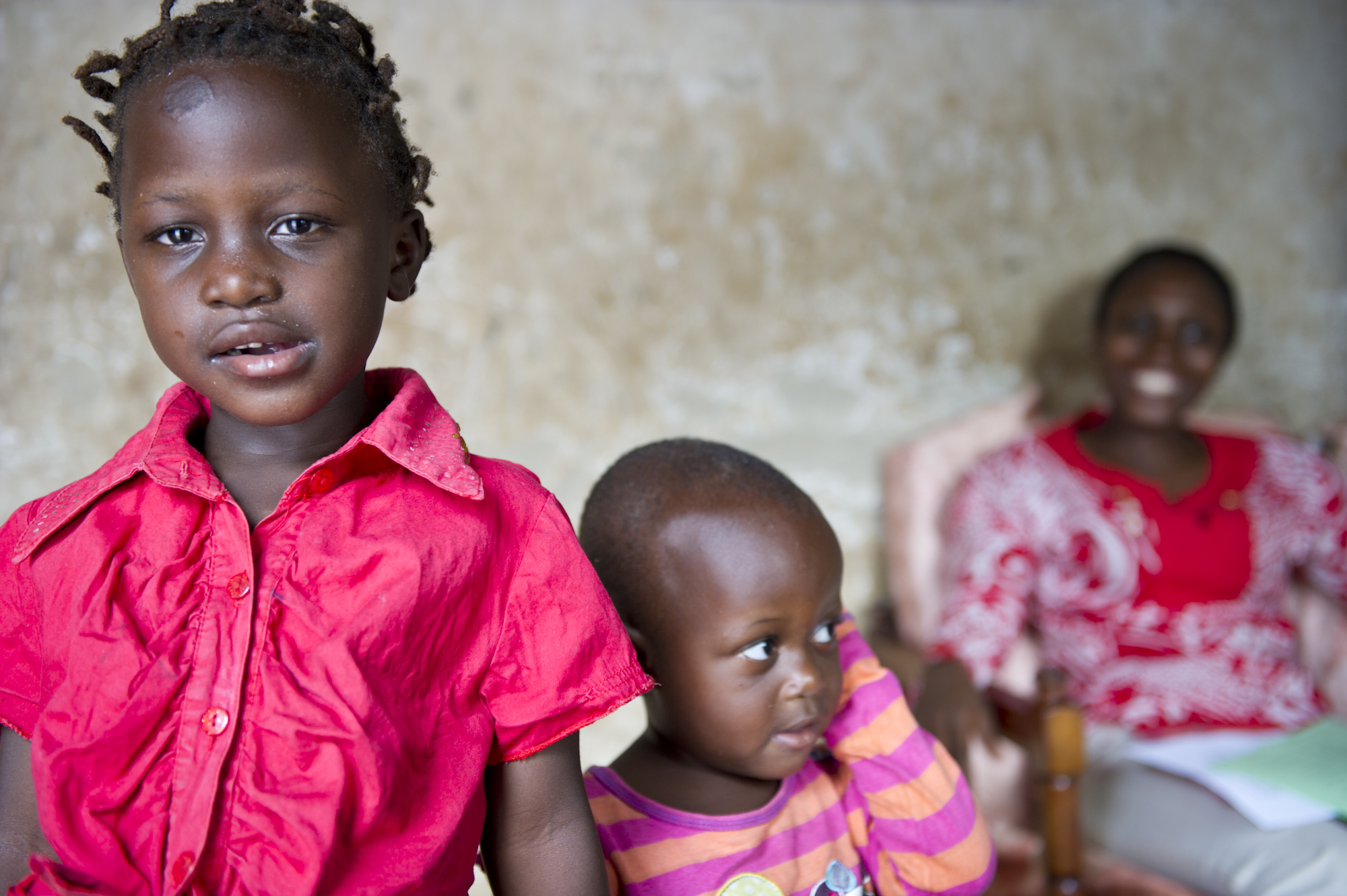Global Pediatrics Research

Global Pediatrics research investigates questions in five key areas:
- Micronutrient deficiency
- Nutrition and infection
- Neurodevelopment
- Neonatal health
- Education
Addressing early childhood malnutrition through a novel agricultural intervention in Rural Cambodia
Children under 5 years of age living in floating fishing villages on the Tonlé Sap Lake in Central Cambodia are at a higher risk of all markers of malnutrition than their peers in other parts of the country. Human-influenced climate change, hydroelectric dam construction and irresponsible fishing practices have all led to marked declines in the fish stocks on the lake. As a result, access to food has become even more limited than it was previously. We are working with the population on construction of floating vegetable gardens to permit families to have access to nutritious foods. By working with families on novel techniques to grow vegetables, we aim to empower women and children to take control of their health and well-being. In addition to the potential direct health benefits of this program, it also affords numerous opportunities for educational sessions regarding the importance of nutrition, clean water and hygiene.
People
Principal Investigator
Jameel J. Winter, MD
Bilirubin-Induced Neurological Dysfunction (BIND) Among Nigerian Infants
This study aims to validate the proposed Bilirubin-induced Neurological Dysfunction (BIND) score in jaundiced newborns by examining infants and scoring signs and symptos that may indicate acute bilirubin encephalopathy. This is a scoring system that may be useful in assessing the symptoms of severe hyperbilrubinemia/janudice in larger population studies.
People
Principal Investigator
Tina Slusher, M.D. - University of Minnesota
Collaborating PI
Paula Rademacher, Ph.D. - University of Louisville
Other Collaborators
J. Aderinsola Owa - Obafemi Awolowo University Teaching Hospitals Complex (Ife Ife, Nigeria)
Funding
University of Louisville
Detection and Correction of Iron Deficiency Induced Abnormal Brain Metabolism
Major Goals: The major goals of this application are to 1) demonstrate that serum proteomics and metabolomics detect impending brain dysfunction, 2) verify that standard hematological and iron parameters are poor indices of brain dysfunction, and 3) establish that iron supplementation in the pre-anemic stage of iron deficiency is essential to mitigate the adverse neurological effects in a nonhuman primate model of iron deficiency anemia.
People
Principal Investigators
Raghavendra Rao, Michael Georgieff, Christopher Coe
Improving the care and neurodevelopmental outcomes of neonates with jaundice in low resource settings.
Severe neonatal jaundice (SNNJ) continues to be a significant problem globally affecting at least 481,000 neonates annually. For many neonates, neonatal jaundice (NNJ) is benign, but high levels of unconjugated bilirubin (UCB) are neurotoxic, leading to cerebral palsy, sensorineural hearing loss, and upward gaze palsy. These complications, which are preventable, lead to a lifetime of impairments and socio-economic disadvantages resulting in a significant personal and societal burden, which disproportionally affect those living in low-to-middle income countries. Through funding from the Thrasher Research Fund and the National Institutes of Health, our team is working to develop low cost technologies to improve the diagnosis and treatment of neonatal jaundice.
People
Principal Investigator
Katie Satrom, MD
Newborn Iron Deficiency
Major Goals: The major goals of this project are 1) to determine whether neuronal iron deficiency during hippocampal development reduces mitochondrial function and alters neuronal structure and efficacy and 2) to determine whether therapies that improve mitochondrial function during development prevent long-term neuronal dysfunction.
People
Principal Investigator
Michael Georgieff
Optimizing Benefits While Reducing Risks of Iron in Malaria-Endemic Areas
Major goal: To establish the optimum sequencing of iron and antimalarial treatment for managing concurrent iron deficiency and malaria, thus guiding future iron intervention programs in malaria-endemic and high-infection settings.
People
Prinicpal Investigator
Sarah Cusick
Co-Principal Investigators
Ezekiel Mupere, Robert Opoka, and Paul Bangirana (Makerere University) and Michael Georgieff, Troy Lund, Maria Kroupina, James Hodges, and Michael Sadowsky (University of Minnesota)
Optimizing iron status while minimizing morbidity in HIV-infected Ugandan children
Major goal: To determine the effect of daily iron supplementation on iron status, red blood cell iron incorporation, infectious disease frequency, and markers of HIV disease severity in HIV-infected Ugandan children.
People
Principal Investigators
Sarah Cusick (University of Minesota), Anne Frosch (HCMC)
Co-Investigator
Victor Musiime (Makerere University)
Funding
Masonic Cross-Departmental Award
Prophylaxis against Malaria to Enhance Child Development
Major Goals: To determine the effect of malaria prevention in pregnant women and their children on child neurodevelopment, and to identify the major mechanisms through which this malaria prevention affects child neurodevelopment.
People
Principal Investigators
Chandy John (Indiana University) and Paul Bangirana (Makerere University)
Co-Investigators
Robert Opoka (Makerere University), Michael Georgieff, Sarah Cusick, Maria Kroupina, Margaret Semrud-Clikeman (Univesity of Minnesota); Grant Dorsey (University of California San Francisco)
The Role of Iron Deficiency in the Neurodevelopment of Children Perinatally Exposed to HIV
Major Goal: To establish the burden of iron deficiency in HIV-infected, HIV-exposed/uninfected, and HIV-unexposed/uninfected children to determine whether there is an association between iron deficiency and neurobehavioral outcomes.
People
Principal Investigators
Sarah Cusick (University of Minnesota) and Victor Musiime (Makerere University)
Co-Investigators
Michael Georgieff and Maria Kroupina (University of Minnesota) and Paul Bangirana (Makerere University)
Roles of Iron-Dependent PHD and JARID in Early-Life Iron Deficiency-Induced Adult Neural Gene Dysregulation
Major Goals: To investigate the roles of iron-dependent cellular mechanisms in the developing brain by which early-life iron deficiency, the most common micronutrient deficiency worldwide, causes persistent cognitive and socio-emotional behavior deficits in adulthood.
People
Principal Investigator
Phu Tran
Co-Investigator
Michael Georgieff
Treatment of Neonatal Jaundice with Filtered Sunlight Phototherapy
Current data suggests that severe newborn jaundice and its progression to kernicterus is a leading cause of deaths and disabilities among newborns in the developing world, particularly in sub-Saharan Africa. In many African countries, most infants live in villages far from clinical facilities that could provide conventional commercial phototherapy (PT). This study aims to test the safety and efficacy of a more readily available method for treatment of pathologic jaundice: filtered sunlight phototherapy.
People
Principal Investigator
Tina Slusher, MD
Collaborating PI
Henk Vreman, Ph.D. - Stanford University
Dr. Bolojoka Olusanya -Lagos State University Nigeria
Dr. Joshua Owa-Obafemi Awolowo University
Funding
Thrasher Research Fund